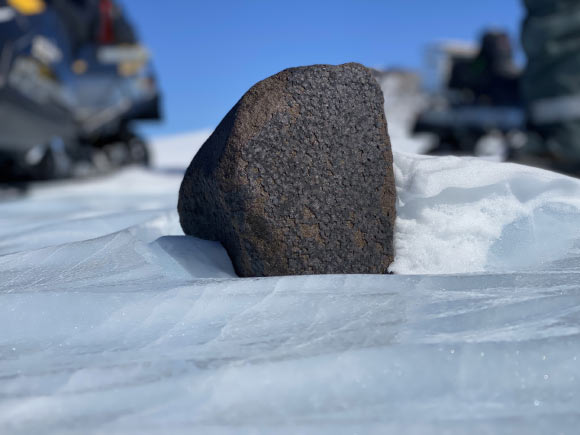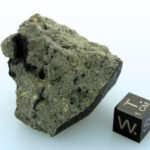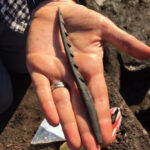A team of meteorite hunters from Belgium and the United States has found five new Antarctic meteorites, including one that weighs 7.6 kg.
“Antarctica is a tough place to work, for obvious reasons — it’s bitterly cold, remote, and wild,” said Dr. Maria Valdes, a researcher at the Field Museum and the University of Chicago, and her colleagues.
“However, it’s one of the best places in the world to hunt for meteorites.”
“That’s partly because Antarctica is a desert, and its dry climate limits the degree of weathering the meteorites experience.”
“On top of the dry conditions, the landscape is ideal for meteorite hunting: the black space rocks stand out clearly against snowy fields.”
“Even when meteorites sink into the ice, the glaciers’ churning motion against the rock below helps re-expose the meteorites near the surface of the continent’s blue ice fields.”
The researchers were the first to explore potential new meteorite sites mapped using satellite imagery.
They found five new extraterrestrial rocks, one of which had a mass of 7.6 kg.
“Of the roughly 45,000 meteorites retrieved from Antarctica over the past century, only about a hundred or so are this size or larger,” Dr. Valdes said.
“Size doesn’t necessarily matter when it comes to meteorites, and even tiny micrometeorites can be incredibly scientifically valuable, but of course, finding a big meteorite like this one is rare, and really exciting.”
“Going on an adventure exploring unknown areas is exciting, but we also had to deal with the fact that the reality on the ground is much more difficult than the beauty of satellite images,” said Dr. Vinciane Debaille, a researcher at the Université Libre de Bruxelles.
“Despite timing their trip for Antarctica’s summertime in late December, temperatures hovered around minus 10 degrees Celsius (14 degrees Fahrenheit).
“Some days during their trip, it was actually colder in Chicago than it was in Antarctica, but spending days riding snowmobiles and trekking through ice fields and then sleeping in a tent made the Antarctic weather feel more extreme.”
The five meteorites recovered by the team will be analyzed at the Royal Belgian Institute of Natural Sciences.
Meanwhile, sediment potentially containing tiny micrometeorites was divided among the researchers for study at their institutions.
“We’re eager to see what the analyses of the meteorites reveal, because studying meteorites helps us better understand our place in the Universe,” Dr. Valdes said.
“The bigger a sample size we have of meteorites, the better we can understand our Solar System, and the better we can understand ourselves.”




